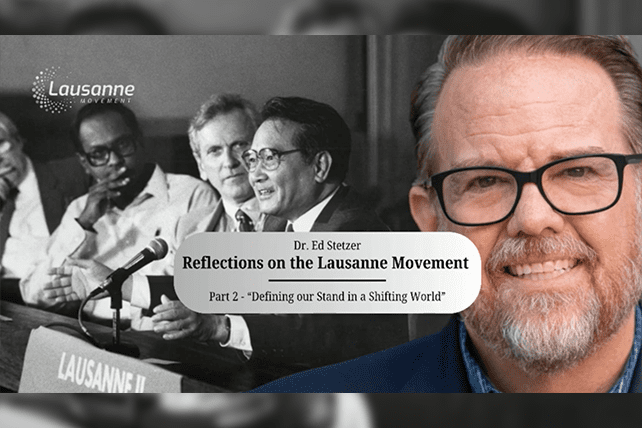As wrote in Part 1 of this series, I serve in a volunteer role as the North American Regional Director for the Lausanne Movement and serve as dean of Talbot School of Theology. In those roles, I have been privileged to be a part of discussions leading up to the fourth Lausanne global congress in Seoul, Korea (L4).
Repeatedly, I have heard the need to revisit and define our stance on critical issues facing Christianity as a whole, but also our evangelical movement and its mission.
Our world and its ideologies, worldviews, and cultural norms are constantly changing. Evangelicals must remain faithful to our mission and the historic Christian faith by clearly and boldly stating our beliefs in light of such issues. While I do not speak on behalf of the Lausanne Movement, I do want to share some reflections on defining our stand with clarity, and my four hopes for the theological commitments we make in Seoul at L4.
The Importance of Theological Markers
Each Lausanne Congress provides the global church with the opportunity to put down markers—foundational statements of faith that shape the movement’s future direction. These markers help clarify our mission and identity, especially as the world continues to change. In previous congresses, we have seen the publication of significant documents such as the Lausanne Covenant (1974), the Manila Manifesto (1989), and the Cape Town Commitment (2010). These documents have profoundly shaped the mission and theology of evangelicals around the world.
As we approach L4, we must recognize how the world has changed since the last congress in Cape Town. In the West, ideologies and “isms” have gained significant ground, such as nationalism, secularism, and progressivism.
At L4, we must once again put down markers. We must define where we stand on critical issues and articulate how the church can faithfully engage the culture without compromising its biblical convictions. Such clarity benefits the church and also the world, which needs a clear and unified global Christian witness.
Here are four theological markers I hope to see rise out of L4 in Seoul.
1. The Kingdom of God in a Shifting World
First, I hope L4 will clarify what the kingdom of God both is and is not. We must explain how the kingdom of God has broken into the world, along with implications for Christians as citizens of that kingdom. Christ reigns over all creation, bringing justice, peace, and reconciliation to a broken world, and this belief is central to Christian faith.
The kingdom of God is about the lordship of Christ over every aspect of life—over every inch (or centimeter for our global friends) of human existence, as Abraham Kuyper pointed out long ago. We must embody the values of the kingdom in every area of life, showing and sharing the love of Jesus as salt and light, demonstrating the transformative power of the gospel in both word and deed.
At the same time, we must also clarify what the kingdom of God is not. The kingdom does not posit a specific program or agenda for social reform or politics. The kingdom of God is not the exact political vision of a specific church or leader. The kingdom of God is not just the good things Christians do in the world.
2. Listening to the Global Church
Second, I hope L4 will listen to the global leaders who attend. North Americans have historically played a leading role in global Christianity, particularly through the Lausanne Movement. But as Christianity continues to decline in the West and grow in the Global South, Christianity is no longer a predominantly Western faith. Christians from Africa, Asia, and Latin America must be heard and valued in our conversations.
In a pre-meeting in New York City with global church leaders, I was asked to bring a greeting from North America. What I said then reflects my hope for L4: that North America can be a voice in the chorus, rather than the choir director. We must recognize that we need the global church to help us all rally toward God’s mission, especially as we confront challenges that are more pronounced in the West, such as secularism and cultural confusion around issues of gender and sexuality.

